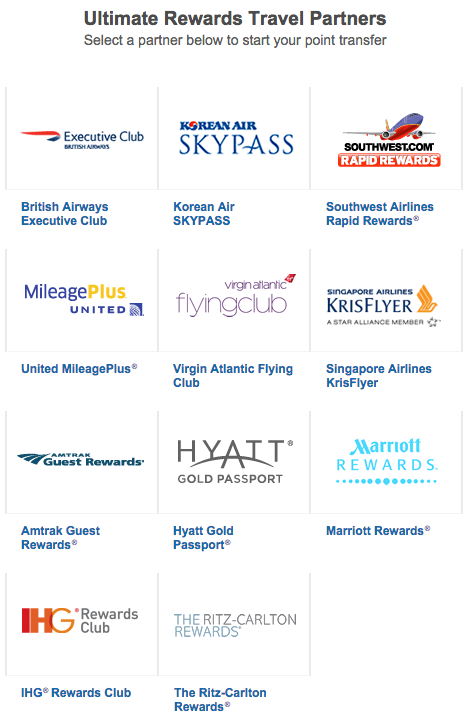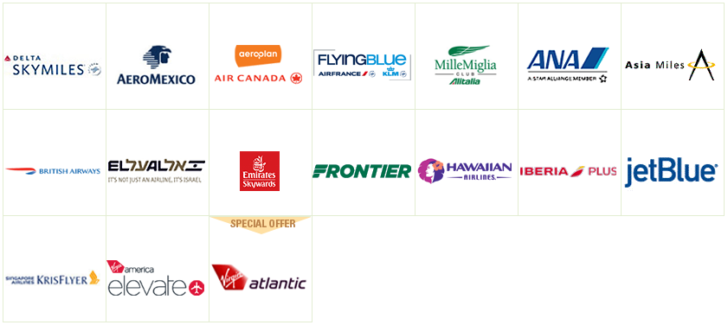This is a basic question, but one asked often enough that it deserves a public answer. Hopefully some of you beginners will find it helpful. If you’re interested, you can also learn my by coming to hear others and me speak at Frequent Traveler University this December, in Washington, DC.
Tom wrote in last month asking more about “points,” I.e., the loyalty currencies you can earn other than frequent flyer miles. He knows that he can earn 1 mile per dollar on every purchase he makes with his Citi AAdvantage credit card and that he can earn 1 mile for every mile he flies on American Airlines. But what about points with hotels or bank-operated credit card rewards programs? How do those work?
Ignore the Names
The first thing you should do if you’re new to miles and points is ignore the names. At one time they made sense. Yes, your really did earn 1 mile for every mile you flew. But credit cards created ways to earn miles without flying, and hotels don’t involve flying at all. The term “miles” doesn’t always make sense, so people called them “points” instead.
Confusion only got worse when some banks created their own currencies and called them miles on purpose, and a few airlines even created trademarked terms. British Airways gets fussy if you call them “Avios points” — only “Avios” will do. Barclaycard calls their points “miles” even though they’re anything but.
For the sake of simplicity, I’ll just use the term “points” for the rest of this post.
The second thing you should know is that whatever the name, each program has points that are worth different values. A good analogy is foreign currency: Every country has its own currency. They can call it whatever they want, and some even use the same name (more than one country has “dollars”). But that doesn’t mean 1 U.S. dollar is the same as 1 Hong Kong dollar or 1 Mexican peso.
Points Have One of Three Owners — None of Them Are You
Fittingly, the third thing to learn is that most points have one of three owners: an airline, a hotel, or a bank. These are the largest managers of loyalty programs. Train operators, supermarkets, and others are also involved in this game, but they have niche roles.
Airlines, as I mentioned, typically offer miles for historical reasons. Distance flown is a very rough proxy for how much revenue you bring to the company, but more and more they are making that link explicit and changing things such that you earn a certain number of miles for every dollar spent on tickets. Hotels and credit card issuers don’t have a distance component in their business models, so they have always based their rewards on dollars spent.
Almost all programs have very specific rules about who owns these points, specifying that they are owned by the program, not you, and can be revoked at any time. I bring this up because you should always be aware of the program rules regarding expiration. If you fail to use your points or violate some policy, they may be taken away from you.
Some Programs Work Together
Although each program has its own rules, you can find ways where they work together. A credit card issuer may allow you to earn points with its own program or with an airline or hotel partner. Sometimes the credit card points can be transferred. Likewise, a hotel may allow you to earn points in its own program or bypass that program and credit directly to an airline.

Focusing on transferrable currencies will increase your flexibility in using points because you aren’t limited to a single program. But don’t forget to consider the value of those points (discussed below). Transferring from worthless currency A to worthless currency B is probably not as good as sticking with a valuable currency that has no transfer partners. Here are some of the better relationships:
Ultimate Rewards works with British Airways, Singapore Airlines, United Airlines, Hyatt, and Marriott. You might also consider transferring to Amtrak or IHG Rewards.
Membership Rewards works with Singapore Airlines, British Airways, and several other international programs. You may have better access to their award space than if you used a domestic partner.
Starwood Preferred Guest has partnerships with nearly every major airline and, in most cases, gives you 5,000 bonus miles when you transfer 20,000 points (25,000 miles total).
Transfers tend to be one-way and follow a pattern between industries. Airlines almost never allow transfers out to another program. Hotels often allow transfers to many airlines, but typically not at a good rate. You should find some other way to earn hotel points, either by staying at a hotel or by using a credit card. Credit card points — those that are transferrable, at least — can usually be transferred to both airlines and hotels. Some partners offer very good transfer rates while others do not.

Value Is Highly Subjective
Finally, let’s get to value. How you value your points depends on what it took to earn them, what you plan to do with them, and what you would have done without them. If you’re a millionaire, you probably don’t need points to take a nice vacation. Regardless what you did with your points, my guess is you would have taken the trip anyway. Some people who don’t have as much money might decide that that the points make the difference between traveling or staying home. And some people would travel anyway, but the points provide a welcome upgrade over their typical experience.
That’s not very helpful, is it? How about this: Don’t value your points at 1 cent each. I know many bank rewards programs do. This can lead to confusion that all points — even those called “miles” — are worth a penny each. But you can often do a lot better.
Get to know your loyalty or rewards program. Who are their partners? How many points does it take for each kind of award? Can you earn points in unconventional ways, or by opening a credit card or shopping online? Can you combine those points with another program by transferring them, or by merging accounts with a spouse or family members?
At the end of the day they’re just boring numbers on an account statement. It’s your responsibility to do something amazing with them.

